Seasonal cash flow tips can help you turn your busiest times into lasting momentum. If you’re a designer buried in launch deadlines, a photographer in back-to-back weddings, or a freelancer working overtime on client projects, your income probably isn’t steady year-round. Often it ebbs and flows seasonally, just like the tides. One thing is clear—you’re not just managing your art, you’re running a business.
Busy seasons feel exciting! When work pours in, it feels like everything’s falling into place. But if you’re not intentional, your bank account can crash just as quickly as it soared. Here’s how to manage those peak months with purpose, so you don’t burn out—or go broke—in the off-season and instead stay in control all year long.
1. Map Out Your Busy and Slow Seasons
You need a clear view of your business rhythm. Start with data. I know, this is not the most fun thing to do but knowing your high and low months gives you control.
Fortunately, this is easy to do with Cloud Accounting tools. You can easily run Profit & Loss reports with customized income comparisons year-to-year, month-to-month. Look at your income from the past 12 to 24 months. Identify when things heat up—and when they cool off.
The following accounting apps all offer project tracking and reporting:
• FreshBooks – I work in all three accounting and by far, I’ve found FreshBooks to be the easiest and most intuitive for Creatives. In fact, FreshBooks has just recently again been recognized by G2, the leading software review platform, earning the number-one ranking in Best Usability and Most Implementable for small businesses for the spring 2025 awards.
• Xero – If you have a larger business with lots of transactions, this might be better for you. Xero has terrific customizable reporting capabilities to get the most insights into your operations.
• QBO – Yes, everyone knows about this one. And I can tell you, I get the most requests for clean-up jobs in QBO. Theres a reason for this…
Pro Tip 1: Tag or label jobs with the month booked and the month completed. This helps you see delays between work done and money received.
Pro Tip 2: Sync your bank accounts so your books update automatically. It’s like having a digital assistant on your team.
2. Turn Spikes Into Steady Pay
Think long-term with your short-term windfalls.
If you make $30K in three months, don’t treat it like it’s all spendable now. Spread it out. Create a monthly draw for yourself, like a paycheck, so you aren’t cash starved in winter months. Of course, if you’re paying taxes as an S-Corp, you’ll want to automatically be paying yourself a fair wage each month. I use Gusto exclusively for payroll. It’s super easy, efficient, and syncs beautifully with FreshBooks.
Pro Tip: If you’re simply doing a draw, set up automatic transfers from your business account to your personal account on a schedule. This removes emotion from the process, and is one less thing to remember.
3. Build a Backup Before You Need It
Every creative business needs breathing room.
Set aside a chunk from every big deposit, even when it feels like you ‘need’ it. This buffer covers dry spells, surprise taxes, or that camera upgrade you didn’t see coming. And if you have a prospect who you really don’t feel is a good fit, it gives you the luxury of saying no without worry.
Pro Tip: Give your savings account a name that reflects your values. “Creative Freedom,” “Freedom Fund” Creative Cushion” all sound better than “Emergency Fund.” How you name it changes how you think about it.
4. Get Ahead With Pre-Booking and Retainers
Early bookings give you stability. Give clients a reason to book early or commit long-term or a retainer.
Offer a bonus, like a priority spot on your calendar. Or offer a small discount for pre-paying. This smooths your income and gives your clients priority access.
Check out this article for more information: Managing Retainers Effectively – Advanced Tips for Creative Businesses
Pro Tip: Promote pre-booking a few weeks before your peak hits. A little planning now fills your future pipeline. Use email marketing or social posts before your peak season starts. A simple “Book Fall Now” message can fill your calendar early.
5. Be Strategic – Limit Spending in High-Income Months
I know, it’s tempting to splurge when the money flows in. But don’t do it. Let go of the “I earned it, I’ll spend it” trap.
Yes, treat yourself. But know the difference between reward and reaction. High income months should fee your business and your future – not just your gear habit. Decide in advance how much goes to savings, taxes, tools, or “fun.” The fancy word for this is ‘budgeting’ and it sounds ominous, but it’s easy to do once you realize the benefits of sticking to it. Here’s more: Budgeting Basics for Designers – Cash Flow Tips
There is actually a bank that helps you do this: Relay. You create separate checking accounts within your business so you can easily see all balances. It integrates with Xero and QBO. For myself, I’ve found the monthly fees to be more than I want to pay, and I can do the same thing with my BlueVine business checking account. It earns interest on all accounts combined, without monthly fees.
Pro Tip: Make a visual goal chart, either electronically or physically. Want to hire help or take a month off? SEEING it helps you save for it. If you’re creating separate accounts within your accounting app, you can easily see the amounts in your dashboard.
6. Don’t Let Taxes Sneak Up On You
The IRS runs on calendars, not creativity. It doesn’t care when you get paid. It only cares how much.
If you earn most of your income in a few months, you may need to pay quarterly taxes. Stay ahead of the game by estimating your taxes year-round. Check out IRS.gov – Estimated Taxes for guidelines.
Pro Tip: Every time you get paid, move 25-30% to one of those separate savings accounts I mentioned in . Make it a non-negotiable habit.
7. Talk to a Professional Bookkeeper Before Things Get Messy
If your business is growing, DIY won’t cut it forever. You probably already are feeling the pinch of trying to manage the finances AND run your business AND keep the creative juices flowing.
A bookkeeper can help you set up a system that works with your creative brain—not against it. They can create custom reports to track seasonal trends and help you price profitably. You get insights, support, and fewer tax-time headaches.
For more on DIY Bookkeeping read this: Pros and Cons of Hiring a Professional Bookkeeper or DIY
Pro Tip: Choose a bookkeeper who knows creative businesses. You want someone who gets how project income works, who understands that not all income is hourly and isn’t shocked by seasonal spikes.
Your work deserves more than just praise—it deserves financial stability. And your peak months should set you up – not stress you out.
Use these seasonal cash flow tips to help you stay steady and build a business that supports your creativity year-round. When your money is handled, you get to focus on what you love: creating, building, and delivering incredible work.
And remember, you don’t have to figure it all out alone. Want personalized help setting this up? Let’s talk.



